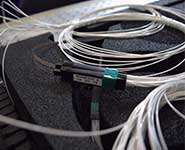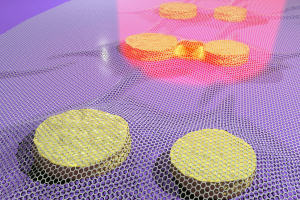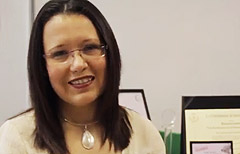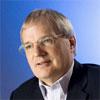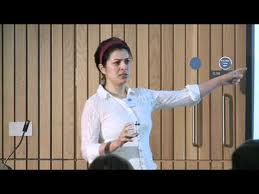Dr Gaven Watson from Bristol University will be presenting a paper at the Association of Computing Machinery’s Conference on Computer and Communications Security (ACM-CCS). The researcher in the university’s Department of Computer Science will be sharing the details of a study – a joint work with the Engineering Faculty of Tel-Aviv University – that validates the proposed protocol design to ...
University Electronics
The latest electronics news from UK universities
UCL student builds #1 Apple’s iPad app
It must be the techy student dream – create a mobile application and then be singled out as the top iPad app out of 475,000 competitors on Apple.com. This is the experience of Vagelis Katsantonis and Elpida Voulgari, who have an MSc in Virtual Environments from University College London and a Masters in Computer Studies at the University of Essex, ...
On gossamer sails, Surrey deorbits telecommunications satellites
The University of Surrey has just successfully finished a deorbiting system for telecommunications satellites. The Surrey Space Centre has completed the design, testing and qualification of the European Space Agency’s (ESA) first such deorbting system. Dubbed the ESA Gossamer Deorbiter, it features a “gossamer sail system”, a telescopic mast to extend the sail deployment mechanism (to avoid interference with other ...
Increasing efficiency of solar cells via randomness
Researchers at the University of St Andrews have been working on a new method to increase the efficiency of solar cells. The new approach, states the university, achieves highly efficient broad-band light trapping in thin films. They say more light is captured in the film in order to maximise absorption and electricity generation. The new method builds on research into ...
Bristol boasts demonstration of multicore fibre-based network
The University of Bristol, along with the National Institute of Information and Communications Technology (NICT), has demonstrated a multicore fibre-based network, which could form the foundation for the future Internet infrastructure. This is important due to optical fibre networks gradually approaching their theoretical capacity limits – new types of fibres such as multicore fibres could overcome critical capacity barriers. The ...
University of Manchester investigates light with Graphene
Graphene. Graphene. Graphene. The University of Manchester is certainly busy in this area of research. For example, Graphene can apparently be used to investigate how light interacts with nano-antennas. This potentially increases the efficiency of solar cells and photo detectors, University of Manchester researchers have found, lead by Dr AravindVijayaraghavan. The Manchester team, in collaboration with Professor Stephanie Reich at ...
Women in STEM celebrated for Ada Lovelace Day
As part of Ada Lovelace day today (15 October 2013), Female scientists, engineers and mathematicians at the University of Sheffield are being celebrated. The aim is to raise the profile of women working in STEM subjects across the globe, says the University. “Women are currently underrepresented in engineering – a fact that leads to a loss of talent and innovation,” ...
University of Cambridge funds Cambridge Innovation Capital
Cambridge Innovation Capital (CIC) has raised an initial £50m from long term institutional and strategic investors to support the growth of innovative businesses based in the Cambridge Cluster. It was helped with funding from the University of Cambridge Endowment Fund and ARM, with the main investors being Invesco Perpetual and Lansdowne Partners. The university will also support CIC through its ...
Nobel Prize awarded to Peter Higgs, Emeritus Professor of Theoretical Physics
We wrote only recently about Emeritus Professor Peter Higgs, and mention must be made of his winning of the Nobel Prize in Physics The Royal Swedish Academy of Sciences’ award to Professor Higgs recognises his outstanding contribution to the theoretical work that led to the prediction of the Higgs boson particle. The Nobel Prize in Physics was in fact awarded ...
Quantum leap forward for superfast computers
Edinburgh University scientists have helped to develop a technique that overcomes the problem of how to test a computer that is faster and more powerful than any other that might be used to test it. “To harness properly the potential of quantum computing, we need to know for sure that it works,” said Elham Kashefi of the univesrity’s School of ...
 Electronics Weekly
Electronics Weekly


